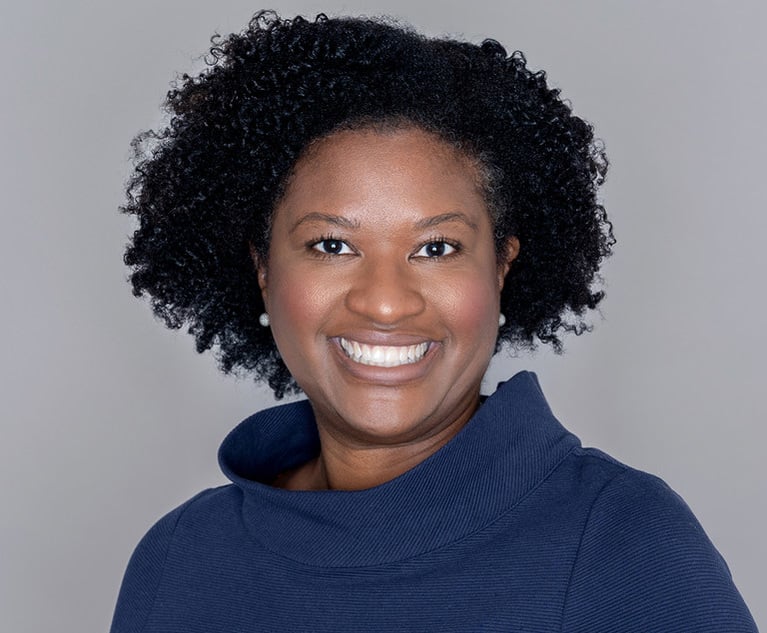High Court Halts Action on Pa. Med Mal Venue Rule Change Until Lawmakers Complete Study
The Supreme Court's announcement comes after members of the medical industry and defense bar pushed back against the proposed changes, which seeks to allow injured plaintiffs to sue in any venue where their health care provider regularly does business.
February 15, 2019 at 02:05 PM
6 minute read

The Pennsylvania Supreme Court has announced it intends to hold off on considering controversial changes to the medical malpractice venue rules—that would abandon a 16-year-old rule requiring that cases be brought in a county where treatment had been provided—until after a legislative committee studies what impacts the proposal may have.
The Supreme Court's announcement comes after members of the medical industry and defense bar pushed back against the proposed changes, which seeks to allow injured plaintiffs to sue in any venue where their health care provider regularly does business. As the rules stand, plaintiffs in medical malpractice cases are limited to suing in the venue where their injuries occurred.
Chief Justice Thomas G. Saylor announced the court's intention to hold off on making the changes in a letter sent Thursday to House Speaker Mike Turzai, R-Allegheny, and House Majority Leader Rep. Bryan Cutler, R-Lancaster.
Although many in the plaintiffs bar contended that the changes were necessary because compensation for those who suffer medical malpractice-related injuries has plummeted, the defense bar argued that the changes would have led to venue-shopping.
The change was proposed in late December by the Supreme Court's Civil Procedural Rules Committee, and the court's announcement to postpone considering the changes came a little more than a week before the Feb. 22 deadline for submitting public comment to the committee on the issue.
The Supreme Court's announcement was quickly lauded by critics of the proposal, such as Curt Shroder, executive director of the Pennsylvania Coalition for Civil Justice Reform, who, in a statement issued Thursday, called the Supreme Court's decision “a welcome development.”
“A change of this magnitude should not be made without due diligence,” Shroder said, adding that the changes would have “disastrous consequences” and would lead to venue shopping. “We must continue our efforts to shine light on this potential change and the harm it would cause Pennsylvania.”
Defense attorney Gary Samms of Obermayer Rebmann Maxwell & Hippel said the announcement relieved some concerns from the defense bar that there would be little transparency to the process, since the proposal was made with little fanfare and the process is typically cloaked in confidentiality. Now that the defense bar is fully aware of the proposal, he said, expect to see continued pressure.
“There's been a lot of discussion among prominent members of the defense bar about the best ways to ensure that the venue law isn't changed,” he said. ”I believe that the medical community and the defense bar will be much more proactive moving forward than reactive regarding this issue.”
Clifford Rieders of Rieders, Travis, Humphrey, Waters & Dohrmann, who is an advocate for the changes, said he was not surprised by the Supreme Court's decision to delay its consideration until after the study is conducted, and said he welcomed an airing of the facts on the issue.
According to Rieders, the number of medical malpractice cases overall have gone down, as have the number of successful results for plaintiffs. The numbers, he said, also show a much higher rate of medical errors than there are medical malpractice lawsuits, and that insurance rates have gone down. He added that, through consolidations and growth, the medical industry has also become like all other industries, so it should be able to be sued anywhere it does business, which is how the venue rules work for most other industries.
“All that data certainly supports a rescission from the rule,” he said. “I don't think it's remarkable for the court to be more reserved in its decision-making process.”
Kline & Specter attorney Shanin Specter, who focuses on representing plaintiffs, called the delay of consideration of the issue “unfortunate.”
“There were close to a dozen changes to the substantive law and civil procedure relating to medical malpractice 17 years ago, so it is simply not possible for a study to parse them out and say which change was responsible for precisely which cases not being filed,” he said. “Meanwhile, Pennsylvania continues to have one set of rules for health care providers and another set of rules for everyone else. That fundamental unfairness should be addressed.”
The controversial proposal is widely seen by lawyers as returning the venue rules back to where they were before the Medical Care Availability and Reduction of Errors (MCARE) Act was enacted in 2002.
Since the rule changes were announced in December, the court committee process, which typically goes unnoticed by the general public, has received an unusual amount of attention.
In proposing the change, the committee, which is chaired by Saltz Mongeluzzi Barrett & Bendesky attorney David Kwass, noted court statistics showing that the total number of medical malpractice cases have dropped nearly 50 percent from the pre-MCARE yearly average. The committee's note also said the drop has caused “a decrease of the amount of claim payments resulting in far fewer compensated victims of medical negligence.”
“The current rule provides special treatment of a particular class of defendants, which no longer appears warranted,” the committee said in its explanatory comment. “The proposed rescission of subdivision (a.1) is intended to restore fairness to the procedure for determining venue regardless of the type of defendant.”
After significant pushback from the defense bar and medical industry, including a press conference in the Pennsylvania State Capitol with the Pennsylvania Coalition for Civil Justice Reform, state House Republican leadership and other medical groups, state Sen. Lisa Baker, R-Luzerne, who is the majority chairwoman of the Pennsylvania Senate Judiciary Committee, proposed a resolution directing the Legislative Budget and Finance Committee analyze the potential impacts of the rule change. The proposal was adopted by the Senate on Feb. 5 by a 31-18 vote.
As part of the study, the Budget and Finance Committee is expected to have at least one public hearing, and to submit its final report to the legislature by Jan. 1, 2020.
The findings are not binding on the court.
This content has been archived. It is available through our partners, LexisNexis® and Bloomberg Law.
To view this content, please continue to their sites.
Not a Lexis Subscriber?
Subscribe Now
Not a Bloomberg Law Subscriber?
Subscribe Now
NOT FOR REPRINT
© 2025 ALM Global, LLC, All Rights Reserved. Request academic re-use from www.copyright.com. All other uses, submit a request to [email protected]. For more information visit Asset & Logo Licensing.
You Might Like
View All


Penn State Dickinson Law Dean Named President-Elect of Association of American Law Schools
Trending Stories
- 1FTC Chair Lina Khan Sues John Deere Over 'Right to Repair,' Infuriates Successor
- 2‘Facebook’s Descent Into Toxic Masculinity’ Prompts Stanford Professor to Drop Meta as Client
- 3Pa. Superior Court: Sorority's Interview Notes Not Shielded From Discovery in Lawsuit Over Student's Death
- 4Kraken’s Chief Legal Officer Exits, Eyes Role in Trump Administration
- 5DOT Nominee Duffy Pledges Safety, Faster Infrastructure Spending in Confirmation Hearing
Who Got The Work
J. Brugh Lower of Gibbons has entered an appearance for industrial equipment supplier Devco Corporation in a pending trademark infringement lawsuit. The suit, accusing the defendant of selling knock-off Graco products, was filed Dec. 18 in New Jersey District Court by Rivkin Radler on behalf of Graco Inc. and Graco Minnesota. The case, assigned to U.S. District Judge Zahid N. Quraishi, is 3:24-cv-11294, Graco Inc. et al v. Devco Corporation.
Who Got The Work
Rebecca Maller-Stein and Kent A. Yalowitz of Arnold & Porter Kaye Scholer have entered their appearances for Hanaco Venture Capital and its executives, Lior Prosor and David Frankel, in a pending securities lawsuit. The action, filed on Dec. 24 in New York Southern District Court by Zell, Aron & Co. on behalf of Goldeneye Advisors, accuses the defendants of negligently and fraudulently managing the plaintiff's $1 million investment. The case, assigned to U.S. District Judge Vernon S. Broderick, is 1:24-cv-09918, Goldeneye Advisors, LLC v. Hanaco Venture Capital, Ltd. et al.
Who Got The Work
Attorneys from A&O Shearman has stepped in as defense counsel for Toronto-Dominion Bank and other defendants in a pending securities class action. The suit, filed Dec. 11 in New York Southern District Court by Bleichmar Fonti & Auld, accuses the defendants of concealing the bank's 'pervasive' deficiencies in regards to its compliance with the Bank Secrecy Act and the quality of its anti-money laundering controls. The case, assigned to U.S. District Judge Arun Subramanian, is 1:24-cv-09445, Gonzalez v. The Toronto-Dominion Bank et al.
Who Got The Work
Crown Castle International, a Pennsylvania company providing shared communications infrastructure, has turned to Luke D. Wolf of Gordon Rees Scully Mansukhani to fend off a pending breach-of-contract lawsuit. The court action, filed Nov. 25 in Michigan Eastern District Court by Hooper Hathaway PC on behalf of The Town Residences LLC, accuses Crown Castle of failing to transfer approximately $30,000 in utility payments from T-Mobile in breach of a roof-top lease and assignment agreement. The case, assigned to U.S. District Judge Susan K. Declercq, is 2:24-cv-13131, The Town Residences LLC v. T-Mobile US, Inc. et al.
Who Got The Work
Wilfred P. Coronato and Daniel M. Schwartz of McCarter & English have stepped in as defense counsel to Electrolux Home Products Inc. in a pending product liability lawsuit. The court action, filed Nov. 26 in New York Eastern District Court by Poulos Lopiccolo PC and Nagel Rice LLP on behalf of David Stern, alleges that the defendant's refrigerators’ drawers and shelving repeatedly break and fall apart within months after purchase. The case, assigned to U.S. District Judge Joan M. Azrack, is 2:24-cv-08204, Stern v. Electrolux Home Products, Inc.
Featured Firms
Law Offices of Gary Martin Hays & Associates, P.C.
(470) 294-1674
Law Offices of Mark E. Salomone
(857) 444-6468
Smith & Hassler
(713) 739-1250






